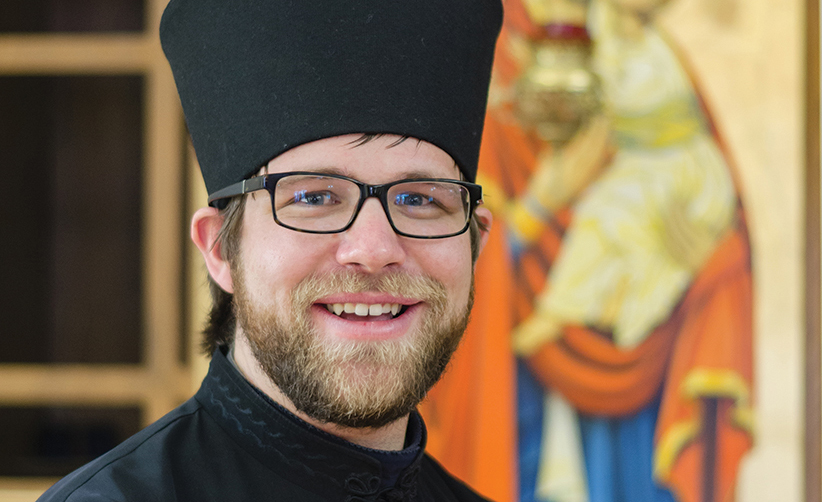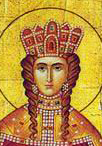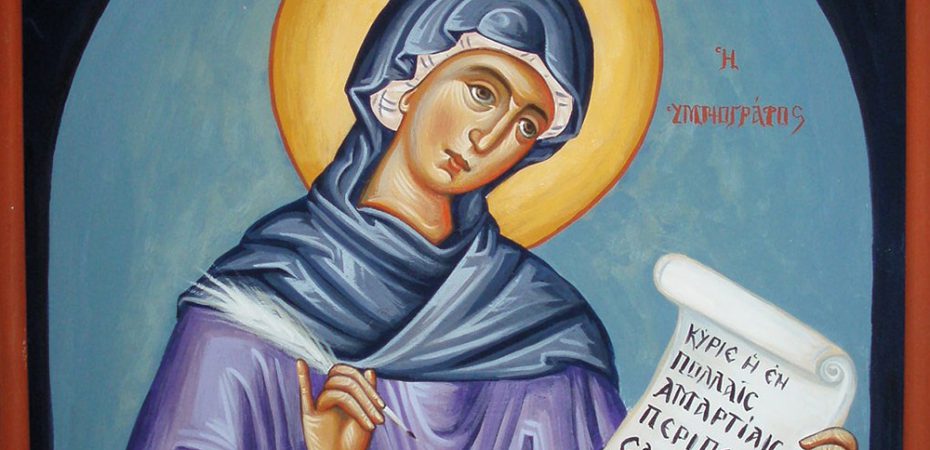Politics of St. Kassiani and St. Theodora
How two women’s sanctity is found in social convention and fighting the establishment
Father Deacon Basil Ryan Balke Comments Off on Politics of St. Kassiani and St. Theodora
 At least when I wrote this column, we are still in an election year and facing a pandemic. This has made me think a lot about the ways in which the saints viewed the politics of their day, and how they worked within, and outside, of the political establishment of their time. I can think of no better way to illustrate this than the stories of St. Kassiani and St. Theodora during the iconoclasm controversy.
At least when I wrote this column, we are still in an election year and facing a pandemic. This has made me think a lot about the ways in which the saints viewed the politics of their day, and how they worked within, and outside, of the political establishment of their time. I can think of no better way to illustrate this than the stories of St. Kassiani and St. Theodora during the iconoclasm controversy.
Kassiani was born to a wealthy family of Constantinople and her father believed that it was important for her to be educated, so he spent a great deal of money educating her. This was not the norm at the time, and she was one of the more educated women of the empire. She had a fiery spirit, which led her to write plenty of quips called “gnomic verse,” which still exists today. My favorite is: “There is absolutely no cure for stupidity, nor help except for death.”
Kassiani was forced, as was the custom, to participate in the bride show, the way Byzantine emperors chose a bride, by giving a golden apple to his future spouse. The Emperor Theophilus, the last iconoclast, taken by her beauty, chose Kassiani and presented her with the golden apple, making the comment, “Through a woman came forth the baser things.” Without missing a beat, she responded, “And through a woman came forth the better things.”
Theophilus, being dense, didn’t understand that she was referring to the Theotokos. He had to turn to one of his generals to have it explained to him.
And that was how Kassiani rejected Theophilus’ proposal of marriage. Kassiani would go on and found a monastery, which became a center for learning and the arts in Constantinople, particularly for women. She was a hymnographer and wrote many hymns, some of which are still used liturgically to this day. Every time she wrote something, she used her own signature, something which was unheard of from women at the time. She protected her friends from the iconoclasts, who were looking to put them to death, and she saved plenty of icons in her monastery.

At that same bride show, Theophilus came across another beautiful woman named Theodora, who did accept the golden apple and hence was married to Theophilus. Theodora was not as fiery as Kassiani, but was saddened by the iconoclasm and her husband’s policy of persecution.
She looked for opportunities to save icons and hid many in the palace. She debated with her husband in private and looked for opportunities to temper his position. Through this imploring of her husband, she would save several saints from death.
Eventually, with his death, his son would become emperor. Michael III was too young to reign, so Theodora served as regent and she called together a new synod and had the iconoclastic clergy expelled from the empire. At this synod, the question of the veneration of icons was finally answered, and they were restored to the temples on that day.
Theodora bided her time and looked for opportunities to work within the system of her day.
Temples are filled with icons and look the way they do, because this woman accepted a golden apple, and waited years till an opportunity presented itself.
Kassiani expressed her views of Theophilus and worked outside the social system. Temples are filled with the sound of her hymns.
Both women were very different, and their approaches were polar opposites, but I don’t think you could say one was greater than the other. I fear that, all too often, sanctity has become a synonym with social convention and political conservatism. Orthodoxy is more about a fixation on the right teaching and little concern for the beatitudes. I also fear, perhaps, that sanctity becomes a synonym for liberal or social change, and that orthodoxy is more about the right practice than about the faith of the councils.
These two women indicate that sanctity is found both in the social convention of their time and in the fighting of the establishment. Personality traits do not determine someone’s sanctity, they enhance it. You don’t have to change who you are in order to be a saint. Sanctity is about allowing the Holy Spirit into our hearts. It doesn’t matter if you are fiery like Kassiani, or conventional like Theodora, the Holy Spirit can enter your heart.
FATHER DEACON BASIL RYAN BALKE is a Byzantine deacon, licensed professional counselor, director of Mount Tabor Counseling, mounttaborcounseling.com, one of the hosts of the Catholic Psyche Podcast, catholicpsyche.com, and director of custom solutions for the Center for InMinistry Development, inministrydevelopment.com.





